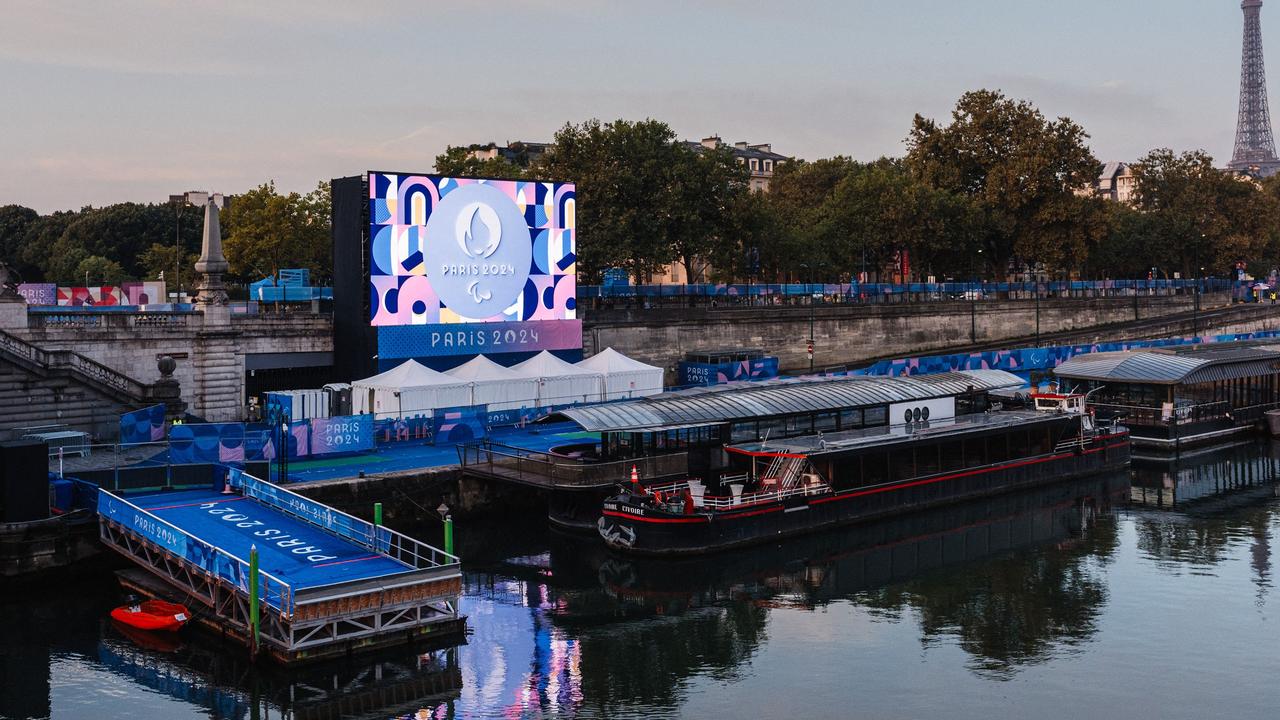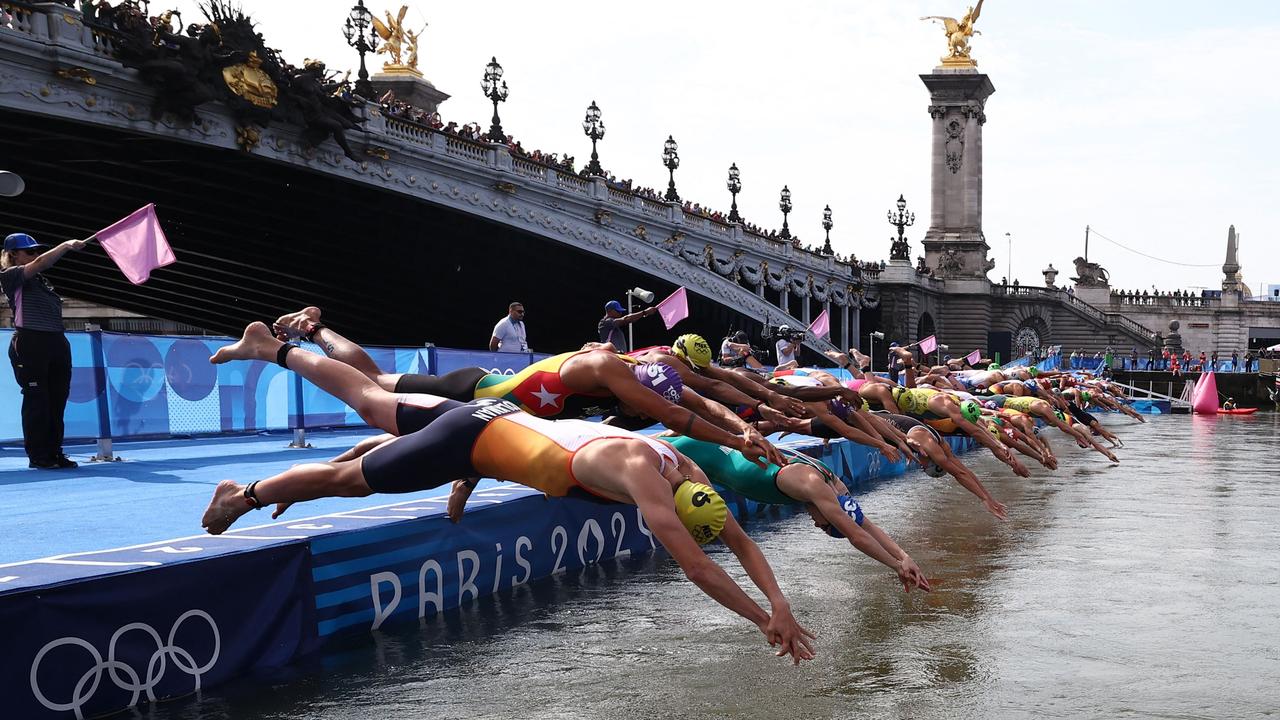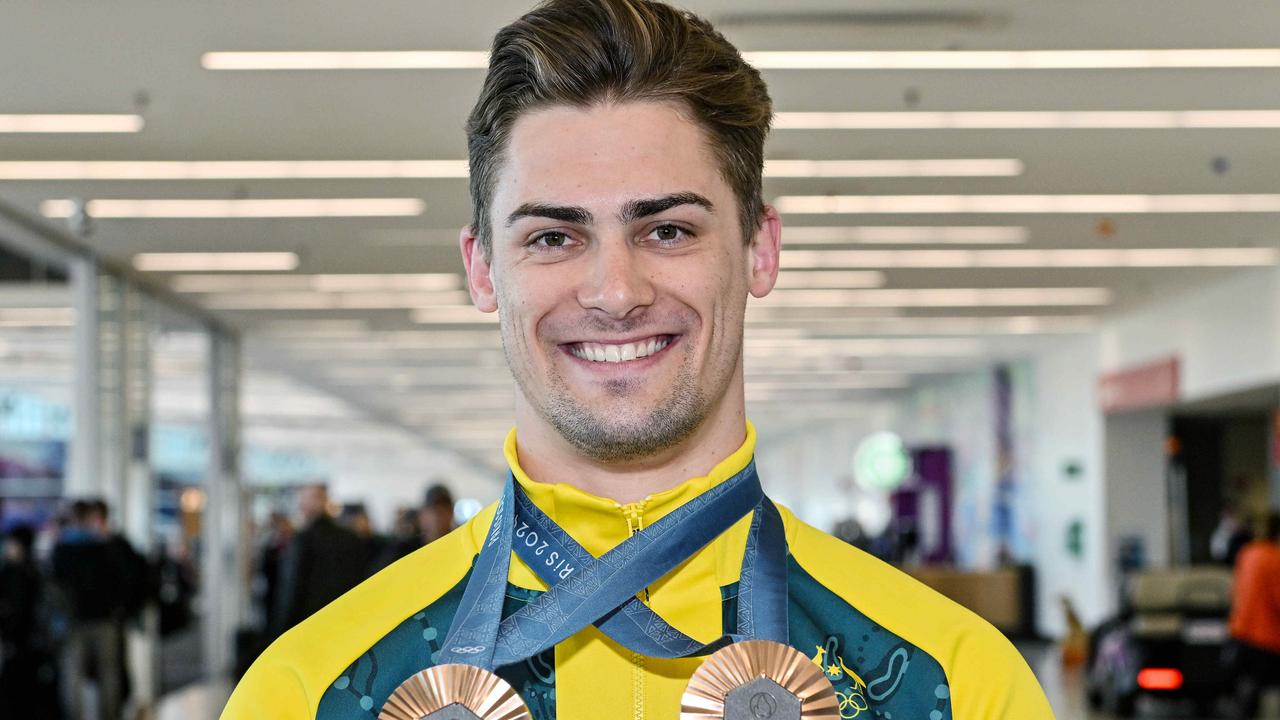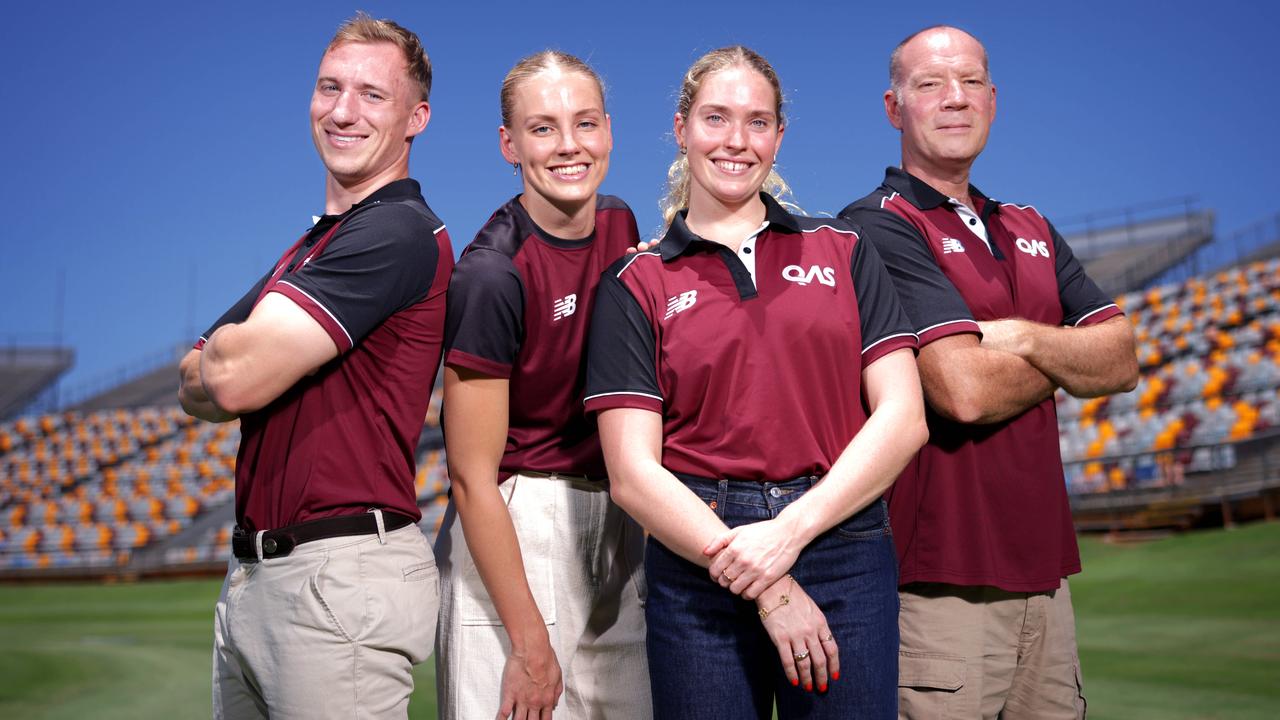Paralympic triathlon postponed as $2.3bn Seine farce strikes again
Paralympic organisers have been forced to follow the Olympics’ suit after the triathlon was meant to kick off on Sunday.

The River Seine has once again become a thorn in the side of Paris organisers after the Paralympics had to postpone the triathlon, a month after the same happened at the Olympics.
A 1.4 billion euro ($A2.3bn) clean up operation to make the Seine swimmable for the first time in over 100 years has again landed in the spotlight after the water quality came under the microscope.
The triathlon was originally scheduled to happen over two days, September 1 and 2, but World Triathlon and Paris 2024 organisers have pushed the event back a day — assuming it passes water quality tests on Monday.
“Following a meeting held on 1 September at 3:30 am attended by representatives of World Triathlon, Paris 2024 and the relevant French authorities involved in monitoring the conditions of the Seine and the weather, the decision has been taken to postpone the Para triathlon competitions which were due to be held on 1 September,” a statement from World Triathlon read.
“The latest tests show a decrease in water quality in the river following the rain episodes over the last two days. As a result, the water quality at the competition venue on Sunday 1 September is not suitable for swimming and above the threshold established by World Triathlon.
“It has been decided to schedule all 11 Para triathlon medal events on 2 September. This is subject to the forthcoming water tests complying with the established World Triathlon thresholds for swimming.
“Paris 2024 and World Triathlon reiterate that their priority is the health of the athletes and with these conditions, the Para triathlon events cannot take place today.
“Information regarding ticketing will be communicated to ticket holders in the coming hours.”

The issue also caused disruption to the Olympics triathlon and open-water swimming events, with several practice sessions being cancelled due to high levels of pollution caused by heavy rainfall.
The clean up of the River Seine has been a controversial topic in the lead up to the Olympics as swimming has been banned its waters for the past century due to pollution from sewage spilling into the river.
Despite the river being declared clean enough for swimming before the Olympics started — enough for Paris mayor Anne Hidalgo take a dip on the eve of the Games — only five of the 11 days of events and training scheduled in the river got the go ahead during the Olympics.
The multi-billion dollar clean up operation upgraded Paris sewerage and water treatment system, but the Seine has been dogged by pollution concerns, notably for its levels of enterococci and E.coli bacteria.
During the Olympics, an employee from the city’s environmental department who agreed to speak with The US Sun last week hit out at the organising committee for stubbornly pushing forward on the Seine.
“It’s insane that the IOC and the organisation of the Olympics had that idea, and are now pushing to have the opening ceremony and some competitions in the Seine,” the employee said.
“The water is very bad, it’s full of dirt and not proper for any activity.
“Also, the levels of chemicals, human faeces, and other dirty things are very high, so bacteria like E. coli are everywhere.”

While the events were eventually run during the Olympics, some athletes opened up about their experiences.
Belgium’s Jolien Vermeylen said she felt debris in the water during her 1500m swim through the iconic French river at the beginning of the Women’s Triathlon.
“While swimming under the bridge, I felt and saw things that we shouldn’t think about too much,” she told Flemish TV channel VTM.
“We’ll know tomorrow if I’m sick or not,” she added. “It doesn’t taste like Coca-Cola or Sprite, of course.”
Dutch competitors shared similar resentments of the water, calling it “disgusting” and “dirty.”
“Swimming in the Seine was disgusting,” Rachel Klamer told RTL Nieuws. “The water was dirty, and the conditions were unfair. A lot of swimmers came out of the water behind me who are actually faster. The swimming was really a lottery.”
With AFP






